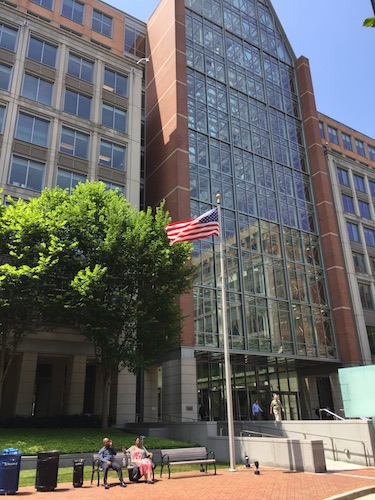New Deadline for USPTO’s RFC on Establishing Community Outreach and Regional Offices
“To foster and expand a ‘vibrant and inclusive innovation and entrepreneurship ecosystem supported by intellectual property across the United States,’ the USPTO is asking stakeholders to weigh in on 16 total questions in its RFC.”
The United States Patent and Trademark Office (USPTO) yesterday republished its Request for Comments (RFC) on the establishment of an additional USPTO Regional Office in the southeast region and four new community outreach offices. The original RFC included a bad link for the comments form, so the Office published a new link and also extended the deadline for comments from July 11, 2023, to July 17.
The RFC is in response to provisions of the Unleashing American Innovators Act of 2022 (UAIA), which was introduced in September 2021 and signed into law in December 2022, and requires the Director of the United States Patent and Trademark Office (USPTO) to establish another satellite office within three years of the bill’s enactment somewhere in the Southeastern region of the nation, which the bill specifically defines as Virginia, North Carolina, South Carolina, Georgia, Florida, Tennessee, Alabama, Mississippi, Louisiana, and Arkansas.
The UAIA also requires the Director to “establish a community outreach office in the northern New England region (the Northern New England Community Outreach Office – (NNECOO)) within five years of enactment,” according the USPTO’s web page on its work under the UAIA, and “authorizes the USPTO to establish at least three additional community outreach offices and to conduct a study to determine whether additional satellite (regional) offices are needed.”
According to the Federal Register Notice, officially published today, June 14, the UAIA imposes the following requirements for consideration of location of the new Southeast Regional Office:
- “SERO1: Number of patent-intensive industries that are located near the site;
- SERO2: How many research-intensive institutions, including higher education institutions, are located near the site;
- SERO3: Governmental and business frameworks, at both the State and local levels, that support intellectual property-intensive industries that are located near the site; and
- SERO4: The proximity of the office to anchor institutions (such as hospitals primarily serving veterans and institutions of higher education), individual inventors, small businesses, veterans, low-income populations, students, rural populations, and any geographic group of innovators that the Director may determine to be underrepresented in patent f
For the Community Outreach Offices (COOs), the Act prohibits establishment of a COO in the same state as the USPTO’s headquarters (Virginia) or in a state that has a regional office (California, Colorado, Michigan, or Texas). One of the COOs must also be in the Northern New England Region and serve the states of Vermont, New Hampshire, and Maine. Preference must be given to locations meeting the following criteria:
- “NNECOO1: There is at least one private institution of higher education and at least one public institution of higher education;
- NNECOO2: There are no more than 15 registered patent attorneys based on information from the USPTO’s Office of Enrollment and Discipline; and
- NNECOO3: According to data from the 2012 Survey of Business Owners conducted by the U.S. Census Bureau, less than 45% of the firms are owned by women, minorities, or veterans.”
To foster and expand a “vibrant and inclusive innovation and entrepreneurship ecosystem supported by intellectual property across the United States,” the USPTO is asking stakeholders to weigh in on 16 total questions, including whether services should be delivered virtually or not; what types of organizations COOs should be paired with; what unique services the COOs and Regional Offices should provide; and the ideal locations of the Southeast Regional Office and New England COO, and why.
Following introduction of the UAIA in 2021, IPWatchdog Founder and CEO Gene said that bill “is a worthwhile idea and provides provisions that would help small businesses and independent inventors.”
Eileen McDermott
Eileen McDermott is the Editor-in-Chief of IPWatchdog.com. Eileen is a veteran IP and legal journalist, and no stranger to the intellectual property world, having held editorial and managerial positions at […see more]







